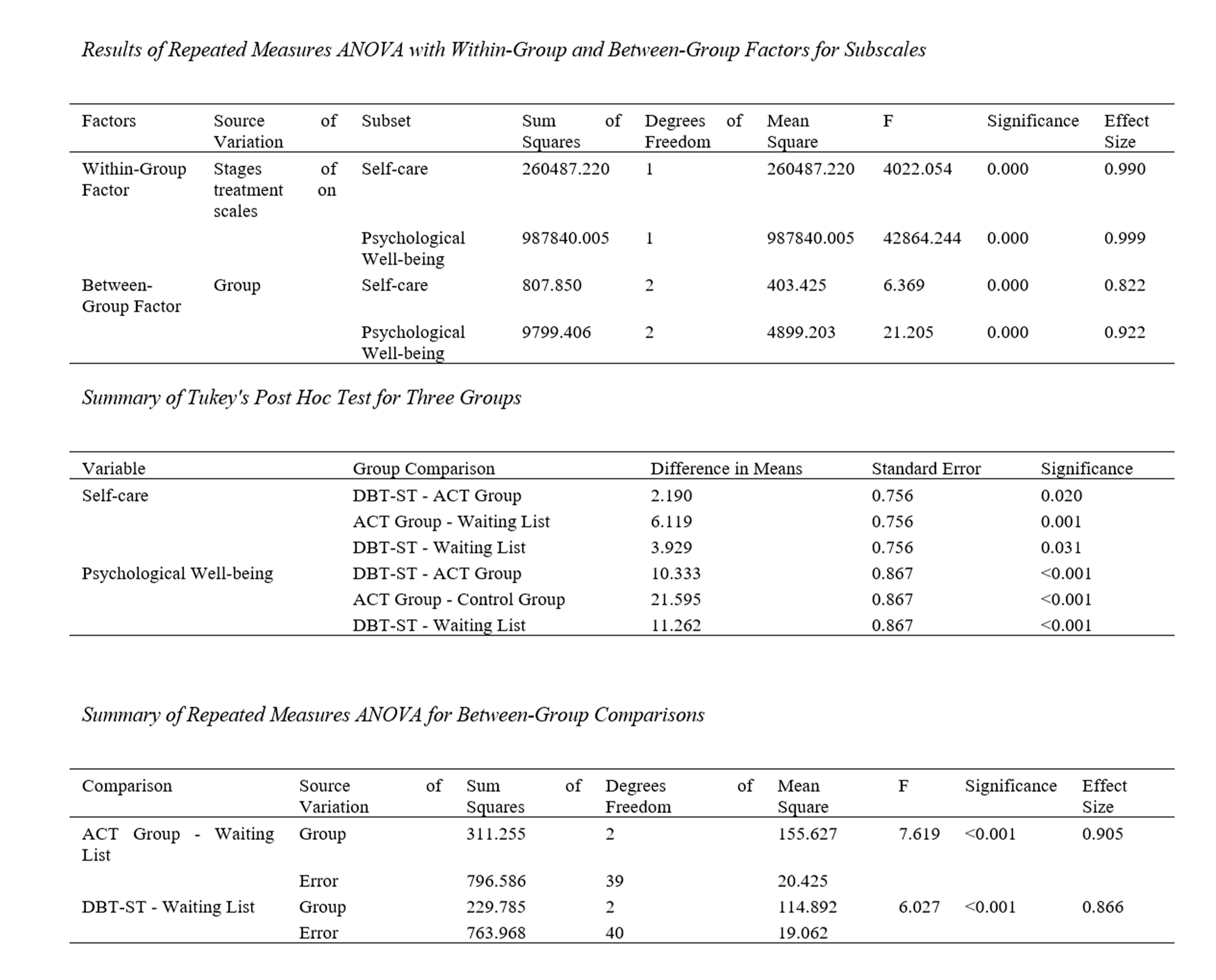Comparing the Effectiveness of Acceptance and Commitment Therapy (ACT) and Dialectical Behavior Therapy Skills Training (DBT-ST) on Self-Care and Psychological Well-being in Patients with Type 2 Diabetes
Abstract
Objective: Diabetes is a chronic, multifaceted, threatening disease with significant psychological consequences. The present study aimed to compare the effectiveness of Acceptance and Commitment Therapy (ACT) and Dialectical Behavior Therapy Skills Training (DBT-ST) on self-care and psychological well-being in patients with Type 2 diabetes.
Methods and Materials: The present study was a quasi-experimental, pre-test-post-test with a control group design. The population included all patients with Type 2 diabetes visiting a medical clinic in the city of Sari, among whom 45 were conveniently selected and randomly assigned into two experimental groups (Acceptance and Commitment Therapy and Dialectical Behavior Therapy Skills Training) and one control group. Data were collected using the Self-Care Questionnaire (Toobert et al., 2000), and the Psychological Well-being Scale (Ryff & Keyes, 1995) at three stages: pre-test, post-test, and follow-up, and were analyzed using analysis of variance with repeated measures.
Findings: The results showed that both Dialectical Behavior Therapy Skills Training and Acceptance and Commitment Therapy were effective on the scores of self-care and psychological well-being. However, the effect of Acceptance and Commitment Therapy was greater than that of Dialectical Behavior Therapy Skills Training on the scores of self-care and psychological well-being.
Conclusion: Based on the results of this study, it can be stated that Acceptance and Commitment Therapy and Dialectical Behavior Therapy Skills Training, through cognitive coping strategies, can lead to the improvement of psychological indicators and enhance the mental and physical health of patients with Type 2 diabetes.
Downloads

Downloads
Additional Files
Published
Submitted
Revised
Accepted
Issue
Section
License
Copyright (c) 2024 Bahareh Montazernia (Author); Shirin Kooshki (Corresponding Author); Mohammad Oraki , Bahram Mirzaian (Author)

This work is licensed under a Creative Commons Attribution-NonCommercial 4.0 International License.








